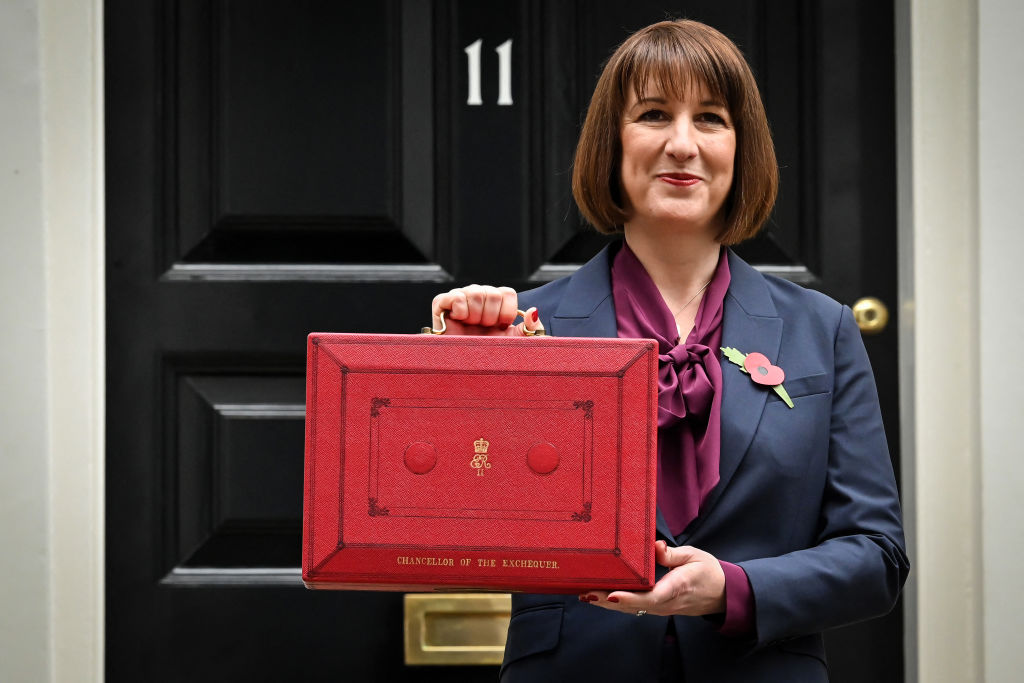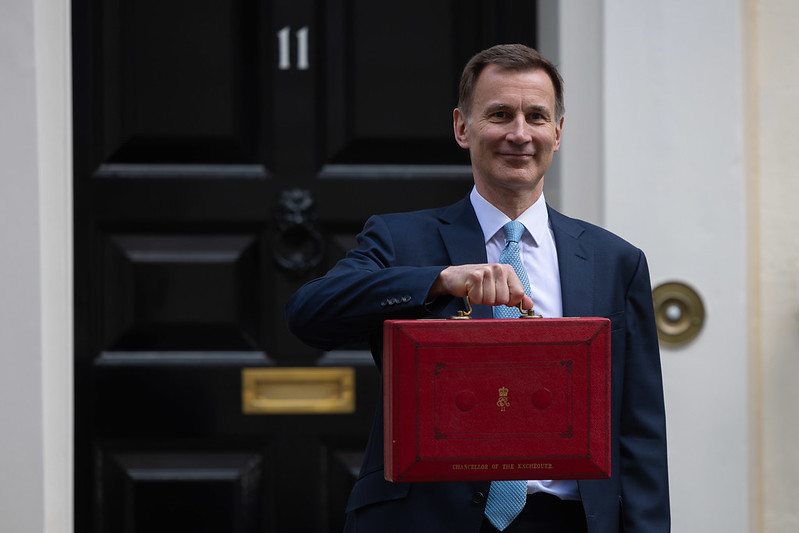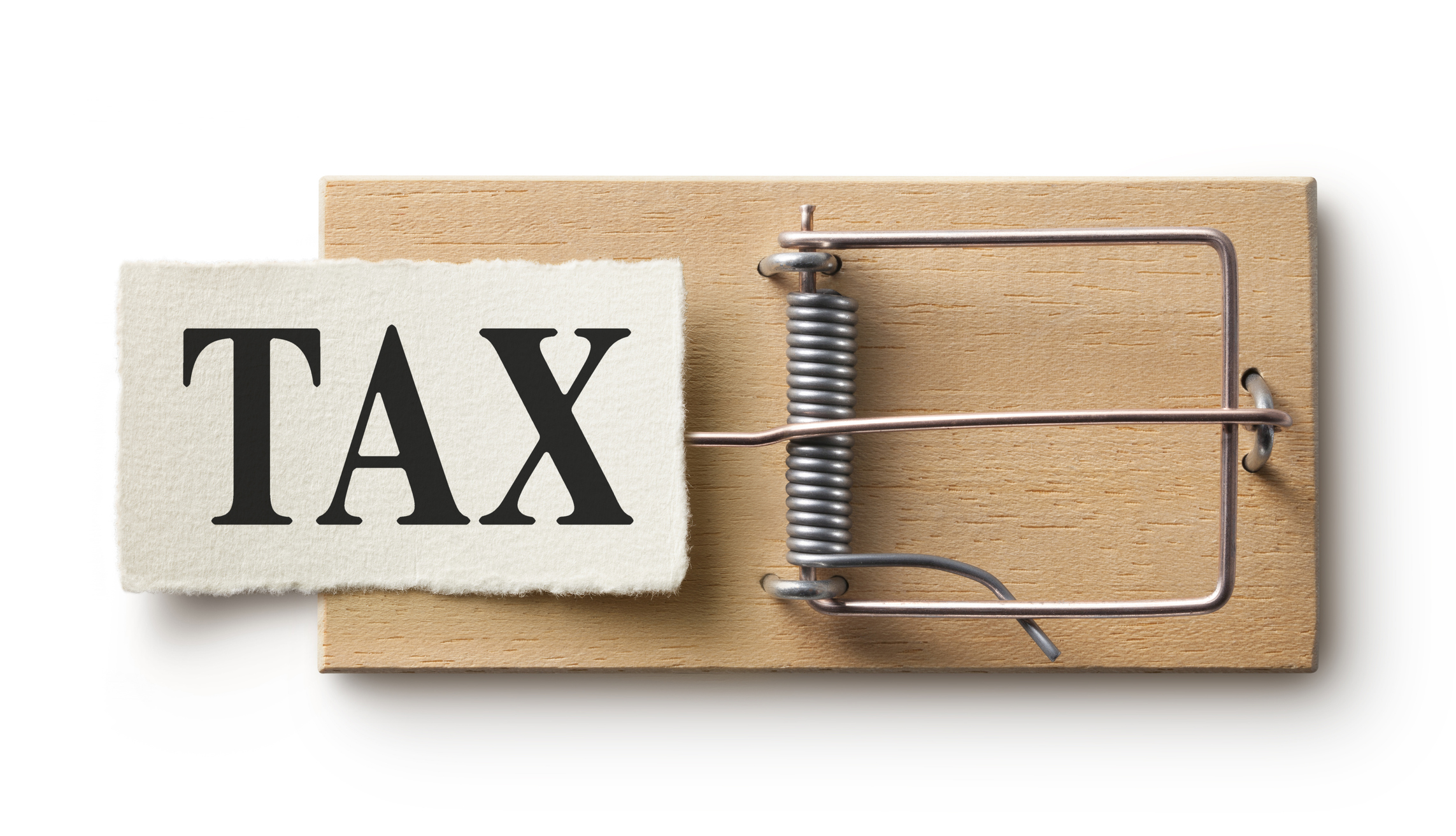What has changed with employers’ National Insurance – and how will it impact you?
Will you feel the effects of the National Insurance hike, as businesses warn of redundancies, smaller pay rises and higher inflation?


Get the latest financial news, insights and expert analysis from our award-winning MoneyWeek team, to help you understand what really matters when it comes to your finances.
You are now subscribed
Your newsletter sign-up was successful
Want to add more newsletters?

Twice daily
MoneyWeek
Get the latest financial news, insights and expert analysis from our award-winning MoneyWeek team, to help you understand what really matters when it comes to your finances.

Four times a week
Look After My Bills
Sign up to our free money-saving newsletter, filled with the latest news and expert advice to help you find the best tips and deals for managing your bills. Start saving today!
Employers are now paying higher National Insurance contributions after changes to the tax kicked in on 6 April, the start of the new tax year. Chancellor Rachel Reeves first announced the policy in her 2024 Autumn Budget.
The changes are two-fold. Firstly, the rate of employer contributions has increased from 13.8% to 15%. Secondly, the threshold for contributions has dropped, meaning businesses now begin paying the tax once a salary hits £5,000, down from £9,100 previously.
Shortly after the policy was announced, the British Retail Consortium (BRC) surveyed 52 leading retailers on the likely impact of the tax hike.
MoneyWeek
Subscribe to MoneyWeek today and get your first six magazine issues absolutely FREE

Sign up to Money Morning
Don't miss the latest investment and personal finances news, market analysis, plus money-saving tips with our free twice-daily newsletter
Don't miss the latest investment and personal finances news, market analysis, plus money-saving tips with our free twice-daily newsletter
As many as two-thirds of businesses said they were thinking about raising prices to help offset the costs. Around half said they were looking at reducing hours and overtime or staff headcount.
Now that the policy has kicked in, we are starting to see the effects in the economic data.
The latest GDP figures from the Office for National Statistics (ONS) show the UK economy shrank by 0.3% in April. Tariffs from US president Donald Trump also contributed to the slump.
In an ONS survey conducted in late May, over three quarters (77%) of businesses with 10 or more employees said their staffing costs had increased over the past three months. This was up 41 percentage points compared with late February, and up 17 percentage points compared with a year ago.
As well as higher taxes and tariff uncertainty, businesses are battling persistent inflation, high borrowing costs, and a higher National Living Wage.
Why did the government hike employers’ National Insurance?
Reeves was in a tight spot when she announced the National Insurance increase last October.
In the lead-up to the general election, Labour pledged not to increase taxes for working people, meaning Reeves was forced to look elsewhere when raising revenue to pay for day-to-day spending.
Against this backdrop, taxing businesses looked like a more expedient move. However, critics of the policy have argued it is foolish to think the hike won’t impact workers.
The government is attempting to limit the impact of the NI policy on small businesses by broadening existing tax relief measures, known as the employment allowance. “This means 865,000 employers won’t pay any National Insurance at all next year,” Reeves said, “and over one million will pay the same or less than they did previously”.
However, industry surveys still paint a challenging picture overall. Financial services company Canada Life found that 26% of small and medium-sized businesses plan to reduce pay rises and bonuses to offset the cost, while 12% plan to reduce employee benefits or make redundancies. Twenty percent say they will accept lower profitability.
Who pays National Insurance?
National Insurance is the second-biggest source of revenue for the government after income tax. In the 2024/25 tax year, NI contributions raised more than £172 billion, equivalent to 20% of total tax receipts.
Employers foot the biggest part of the NI bill. They paid 67% of the total in 2024/25.
Some self-employed people are also required to pay NI contributions, depending on how high their profits are. Those beneath the threshold and those who are not currently working can choose to pay voluntary contributions to avoid gaps in their NI record. Your NI record is used to calculate benefits like the state pension.
How much do employees pay versus employers?
There are different classes of National Insurance, depending on your working status. If you are employed, you will pay Class 1. This is split into primary contributions which are paid by the employee, and secondary contributions which are paid by the employer.
Employee NI contributions
There are different National Insurance rates depending on how much you get paid. An employee who earned £1,000 a week would pay £58.66 per week in National Insurance contributions, as the below table shows:
Your weekly earnings | Class 1 National Insurance rate | How much you will pay if you earn £1,000 a week |
£0-£242 | 0% | £0 on the first £242 |
£242.01 to £967 | 8% | £58 on the next £725 |
Over £967 | 2% | 66p on the next £33 |
Employer NI contributions
Under the old rules, employers started making NI contributions for an employee once their salary hit £175 per week, equivalent to £9,100 per year. On 6 April 2025, the threshold dropped to £96 per week, equivalent to £5,000 per year.
Previously, contributions were paid at a rate of 13.8%. This has now increased to 15%.
This means employers have gone from paying £113.85 to £135.60 per week in National Insurance, assuming the employee in question earns £1,000 per week. That is an increase of around £22 per week, and more than £1,100 per year.
What tax relief can employers claim?
A tax relief measure called the employment allowance allows some employers to reduce their annual National Insurance liability by up to £10,500 in total. This was previously £5,000, but Reeves increased the allowance as part of the Autumn Budget.
Under previous rules, you could only claim this allowance if your annual NI liability was less than £100,000 in the previous tax year. This meant only small businesses were eligible for the allowance.
To soften the blow of the Budget, Reeves removed the £100,000 threshold, meaning most businesses or charities can now apply for tax relief.
Get the latest financial news, insights and expert analysis from our award-winning MoneyWeek team, to help you understand what really matters when it comes to your finances.
Katie has a background in investment writing and is interested in everything to do with personal finance, politics, and investing. She previously worked at MoneyWeek and Invesco.
-
 Pension Credit: should the mixed-age couples rule be scrapped?
Pension Credit: should the mixed-age couples rule be scrapped?The mixed-age couples rule was introduced in May 2019 to reserve pension credit for older households but a charity warns it is unfair
-
 Average income tax by area: The parts of the UK paying the most tax mapped
Average income tax by area: The parts of the UK paying the most tax mappedThe UK’s total income tax bill was £240.7 billion 2022/23, but the tax burden is not spread equally around the country. We look at the towns and boroughs that have the highest average income tax bill.
-
 The most and least expensive countries to be an expat in 2025
The most and least expensive countries to be an expat in 2025With some Brits fleeing the country to avoid seemingly ever-increasing taxes, we look at the most and least expensive countries to emigrate to.
-
 Conservatives pledge to cut National Insurance again – how much could you save?
Conservatives pledge to cut National Insurance again – how much could you save?News A 2p reduction in National Insurance is a key feature of the Tory’s general election manifesto.
-
 Workers set for new national insurance tax cut – how much will you save?
Workers set for new national insurance tax cut – how much will you save?News National insurance tax rates have fallen but frozen allowances may limit the benefits.
-
 Spring Budget: What the latest National Insurance cut means for you
Spring Budget: What the latest National Insurance cut means for youNews Chancellor Jeremy Hunt announced a 2p cut in National Insurance in his latest fiscal update – how much could you actually save?
-
 Budget 2024: National Insurance cut, a new British ISA, and reform of the child benefit charge - here’s what has been announced
Budget 2024: National Insurance cut, a new British ISA, and reform of the child benefit charge - here’s what has been announcedThe chancellor has announced a host of changes, including cutting National Insurance again, and abolishing some tax reliefs. Here’s how the Budget will affect your finances.
-
 Brace for a year of tax rises
Brace for a year of tax risesThe government is strapped for cash, so prepare for tax rises. But it’s unlikely to be able to squeeze much more out of us.
-
 Topping up state pension to become easier with new online tool
Topping up state pension to become easier with new online toolAnyone looking to buy extra National Insurance contributions and boost their state pension currently has to make multiple phone calls - but a new online tool is on its way.
-
 Gender pensions gap - are women paying a parenthood penalty?
Gender pensions gap - are women paying a parenthood penalty?Trade body warns women face serious obstacles to saving enough for retirement as the gender pensions gap continues. Is raising a family having a detrimental impact on our pension pot?
